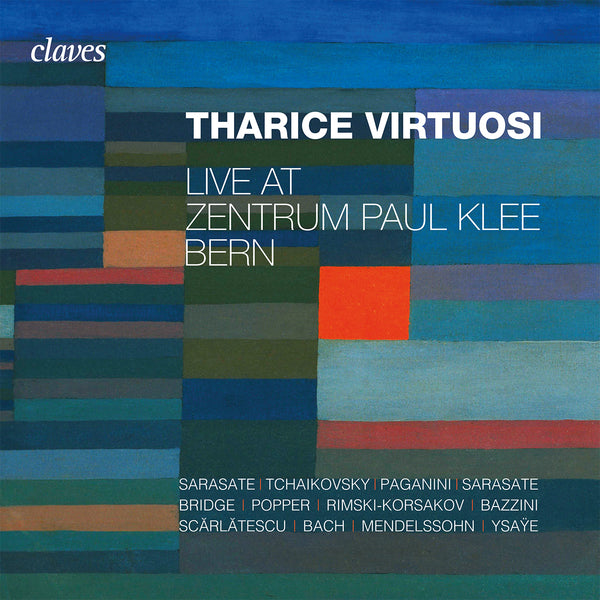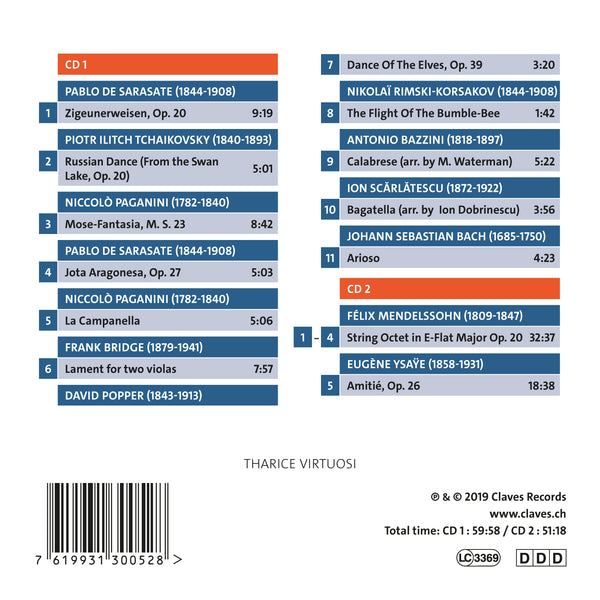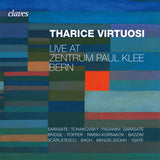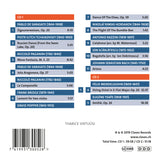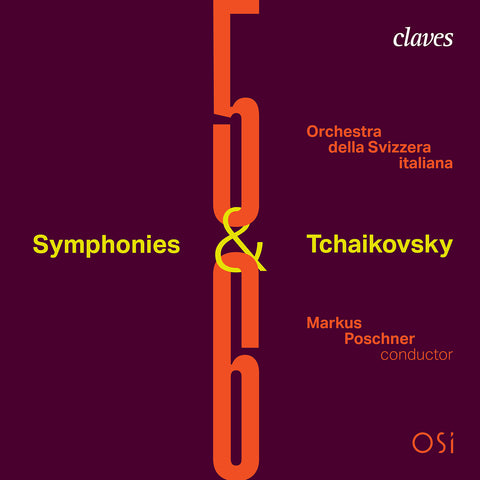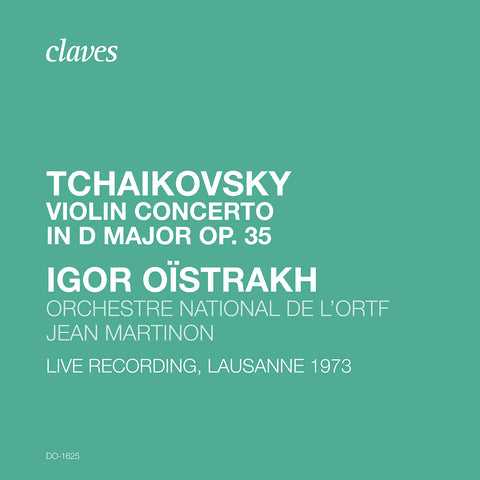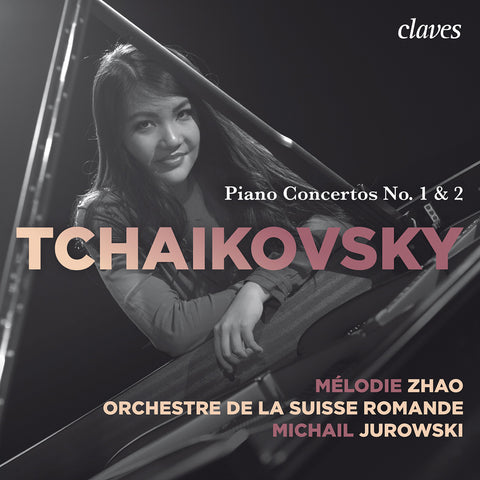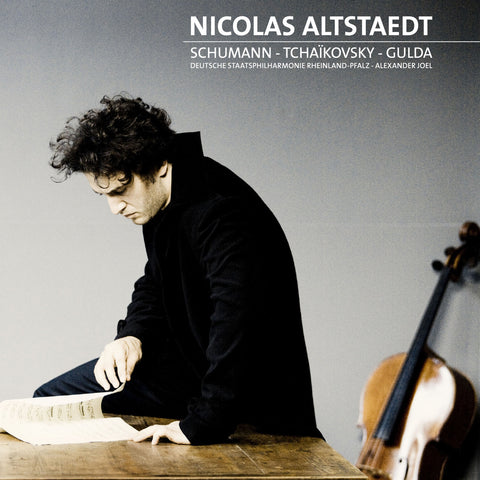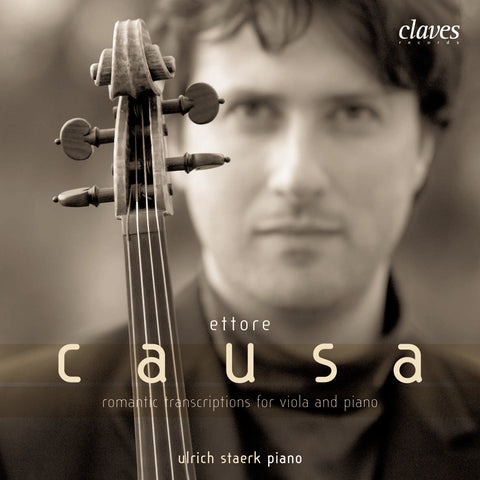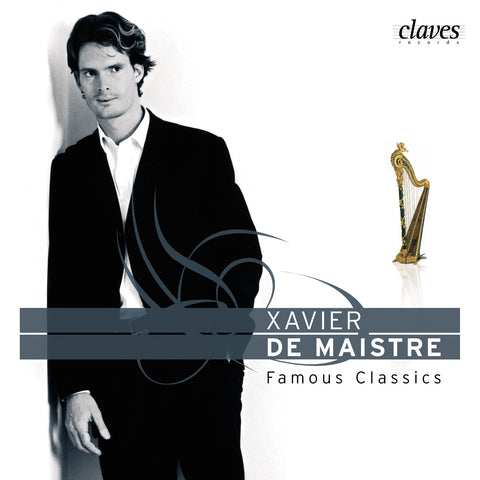(2020) Tharice Virtuosi - Live at Zentrum Paul Klee, Bern
Kategorie(n): Kammermusik Repertoire
Instrument(e): Violoncello Viola Geige
Hauptkomponist: Niccolò Paganini
CD-Set: 2
Katalog Nr.:
CD 3005/06
Freigabe: 17.01.2020
EAN/UPC: 7619931300528
Dieses Album ist jetzt neu aufgelegt worden. Bestellen Sie es jetzt zum Sonderpreis vor.
CHF 24.00
Dieses Album ist nicht mehr auf CD erhältlich.
Dieses Album ist noch nicht veröffentlicht worden. Bestellen Sie es jetzt vor.
CHF 24.00
Dieses Album ist nicht mehr auf CD erhältlich.
CHF 24.00
Inklusive MwSt. für die Schweiz und die EU
Kostenloser Versand
Dieses Album ist nicht mehr auf CD erhältlich.
Inklusive MwSt. für die Schweiz und die EU
Kostenloser Versand
Dieses Album ist jetzt neu aufgelegt worden. Bestellen Sie es jetzt zum Sonderpreis vor.
CHF 24.00
Dieses Album ist nicht mehr auf CD erhältlich.
This album has not been released yet.
Pre-order it at a special price now.
CHF 24.00
Dieses Album ist nicht mehr auf CD erhältlich.
CHF 24.00
Dieses Album ist nicht mehr auf CD erhältlich.
NEU: Einkäufe werden von nun an in der Währung Ihres Landes getätigt. Land hier ändern oder beim Checkout
SPOTIFY
(Verbinden Sie sich mit Ihrem Konto und aktualisieren die Seite, um das komplette Album zu hören)
THARICE VIRTUOSI - LIVE AT ZENTRUM PAUL KLEE, BERN
OF MEAT AND LOLLIPOPS
A time there was when concert programmes comprised a merry medley of music high and low, the short and sweet alongside the longer and the lofty. That changed in the second half of the 19th century, when Richard Wagner and others introduced the concept of the “symphony concert”, usually in three weighty parts, namely an overture, a solo concerto and a symphony. With today’s emphasis on “music communication”, things seem to have gone full circle. More and more major orchestras are offering daytime concerts in which a meaty repertoire piece is placed alongside shorter works of the kind Thomas Beecham used to call “lollipops”. The Tharice Ensemble thrives on such juxtapositions, as is evidenced by the programme recorded here. They also offer many of these smaller works in arrangements of their own. In historical terms, this is a thoroughly “authentic” approach, for it was a common practice until the 20th century began to insist on an often fictitious fidelity to a fixed text.
The earliest piece recorded here, Bach’s “Arioso”, is an ideal place to start our consideration of this meat-and-lollipops programme. Bach used it as both the Sinfonia to his Cantata No. 156 and the slow movement of his Concerto BWV 1056, but these were apparently arrangements of an earlier piece, since lost. So it’s fitting that this piece should have long achieved complete independence, with every new generation making its own arrangements – such as the version for violin solo and strings on this CD.
The “meat” in our present dish is Mendelssohn’s Octet for strings, opus 20. Composed in 1825 when he was just sixteen, it arguably surpasses the achievement of any other musical prodigy, from Wolfgang Mozart to Erich Wolfgang Korngold. But even on its own terms it is one of the pinnacles of Romantic chamber music. Mendelssohn combines formal perfection with an unerring sense of drama (witness the astonishing ascent to the tonic at the end of the exposition of the first movement, about four minutes in). The slow movement is a magnificent hybrid of the angelic and the passionate, the scherzo is his first real essay in the “fairy music” for which he became famous, and the last movement is a perpetuum mobile by a master contrapuntist with a technique far beyond his years.
***
Tharice Virtuosi
Liviu Prunaru, violin
Valentina Svyatlovskaya, violin
Bogdan Zvoristeanu, violin
Oleg Kaskiv, violin
Edgar Pujol, violin
Vlad Stanculeasa, violin
Sophia Reuter, viola
Ettore Causa, viola
Stanimir Todorov, cello
Pablo de Naverán, cello
Daniel Mitnitsky, cello
(2020) Tharice Virtuosi - Live at Zentrum Paul Klee, Bern - CD 3005/06
OF MEAT AND LOLLIPOPS
A time there was when concert programmes comprised a merry medley of music high and low, the short and sweet alongside the longer and the lofty. That changed in the second half of the 19th century, when Richard Wagner and others introduced the concept of the “symphony concert”, usually in three weighty parts, namely an overture, a solo concerto and a symphony. With today’s emphasis on “music communication”, things seem to have gone full circle. More and more major orchestras are offering daytime concerts in which a meaty repertoire piece is placed alongside shorter works of the kind Thomas Beecham used to call “lollipops”. The Tharice Ensemble thrives on such juxtapositions, as is evidenced by the programme recorded here. They also offer many of these smaller works in arrangements of their own. In historical terms, this is a thoroughly “authentic” approach, for it was a common practice until the 20th century began to insist on an often fictitious fidelity to a fixed text.
The earliest piece recorded here, Bach’s “Arioso”, is an ideal place to start our consideration of this meat-and-lollipops programme. Bach used it as both the Sinfonia to his Cantata No. 156 and the slow movement of his Concerto BWV 1056, but these were apparently arrangements of an earlier piece, since lost. So it’s fitting that this piece should have long achieved complete independence, with every new generation making its own arrangements – such as the version for violin solo and strings on this CD.
The “meat” in our present dish is Mendelssohn’s Octet for strings, opus 20. Composed in 1825 when he was just sixteen, it arguably surpasses the achievement of any other musical prodigy, from Wolfgang Mozart to Erich Wolfgang Korngold. But even on its own terms it is one of the pinnacles of Romantic chamber music. Mendelssohn combines formal perfection with an unerring sense of drama (witness the astonishing ascent to the tonic at the end of the exposition of the first movement, about four minutes in). The slow movement is a magnificent hybrid of the angelic and the passionate, the scherzo is his first real essay in the “fairy music” for which he became famous, and the last movement is a perpetuum mobile by a master contrapuntist with a technique far beyond his years.
***
Tharice Virtuosi
Liviu Prunaru, violin
Valentina Svyatlovskaya, violin
Bogdan Zvoristeanu, violin
Oleg Kaskiv, violin
Edgar Pujol, violin
Vlad Stanculeasa, violin
Sophia Reuter, viola
Ettore Causa, viola
Stanimir Todorov, cello
Pablo de Naverán, cello
Daniel Mitnitsky, cello
Return to the album | Read the booklet | Composer(s): Niccolò Paganini | Main Artist: Tharice Virtuosi
STUDIO-MASTER (HOCHAUFLÖSENDES AUDIO)
Amethys Design
Auf Lager
David Popper
Ettore Causa - viola
Eugène Ysaÿe (1858-1931)
Felix Mendelssohn
Frank Bridge
Geige
High-resolution audio - Studio master quality
Ion Scărlătescu
Johann Sebastian Bach (1685-1750)
Kammermusik
Liviu Prunaru
Niccolò Paganini
Nikolaï Rimski-Korsakov
Oleg Kaskiv - violin
Pablo de Naverán
Pablo de Sarasate
Piotr Ilyich Tchaikovsky (1840-1893)
Repertoire
Tharice Virtuosi
Viola
Violoncello
Amethys Design
Auf Lager
David Popper
Ettore Causa - viola
Eugène Ysaÿe (1858-1931)
Felix Mendelssohn
Frank Bridge
Geige
High-resolution audio - Studio master quality
Ion Scărlătescu
Johann Sebastian Bach (1685-1750)
Kammermusik
Liviu Prunaru
Niccolò Paganini
Nikolaï Rimski-Korsakov
Oleg Kaskiv - violin
Pablo de Naverán
Pablo de Sarasate
Piotr Ilyich Tchaikovsky (1840-1893)
Repertoire
Tharice Virtuosi
Viola
Violoncello







